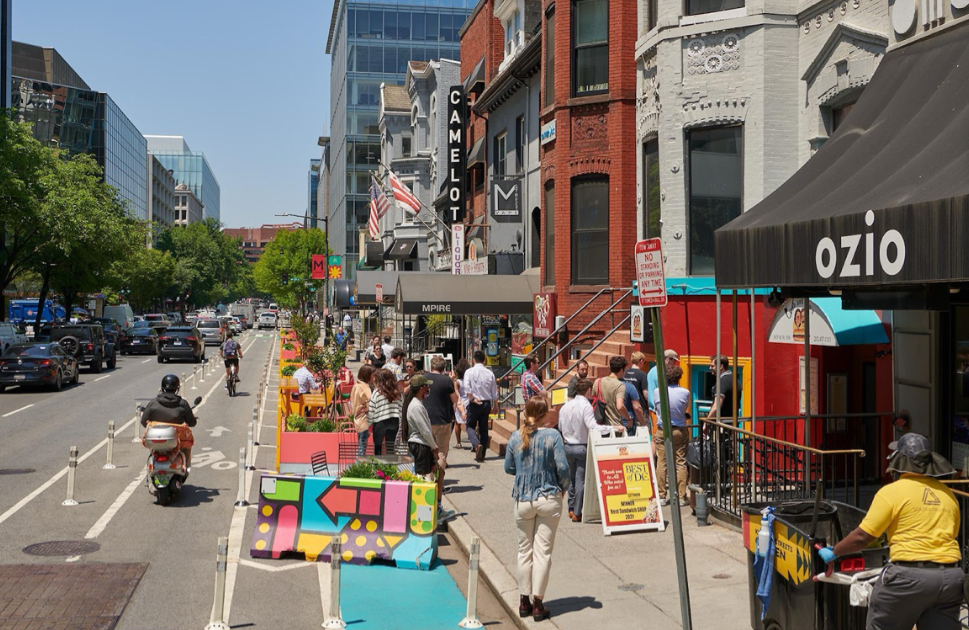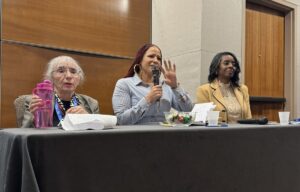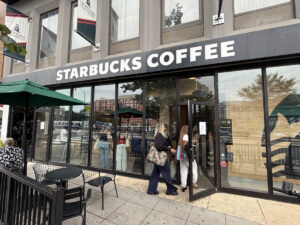By Mekala Seme
The aftermath of COVID-19 has redirected economic activity away from the district’s downtown area, where many small businesses operate, to the outer counties of the Washington metropolitan area, according to the 2023 State of Business Report from the D.C. Policy Center.
The report details that foot traffic in downtown D.C. and other office-heavy neighborhoods has declined since the onset of the COVID-19 pandemic, impacting businesses, especially those that primarily serve office workers in DC’s downtown.
In unprecedented times, businesses in the area can leverage city resources to help support their businesses.
The Golden Triangle Business Improvement District (BID) is a local self-taxing district primarily focused on creating a clean, vibrant environment for businesses to grow within D.C.’s central business district.
Andrew Huff, Associate Director of Government and Member Relations at the Golden Triangle BID, collaborates with businesses in the area to address their needs, offer support, and identify vacancies in the vicinity.
“Businesses in the area are doing what they can but experiencing challenges along the way,” said Huff. “It’s now about what the city can do to help these businesses.”
Following the pandemic, the Golden Triangle BID is utilizing vacancies to attract foot traffic to businesses and assist with applications and sanitation.
“We work closely with a lot of restaurants in the area, and get calls asking for help with permits, rat problems in the alleyway and connecting them with city services,” he added.
Streamlining support for small businesses in the area is crucial for the local economy.
In her tenure as the Ward 2 councilmember, Brooke Pinto has been an advocate for initiatives supporting small businesses, predominantly minority and women-owned businesses.
“Our local and small businesses provide economic stability, opportunity and dynamism to our Ward 2 communities and draw residents and visitors from across the region and world,” said Pinto.
Pinto also stresses the role that small businesses play in promoting sustainability, culture, and community engagement within Ward 2.
“From Georgetown to Chinatown, Dupont to Shaw, Logan Circle to Downtown, small businesses help drive the heart and soul of Ward 2 by creating spaces for the community to gather together,” said Pinto.
She continued, “Activating green spaces and commercial districts with art and performance, and making our neighborhoods a place where people can and want to live, work, visit, and do business.”
Similar to the Golden Triangle BID, the Small Business Administration (SBA) is a federal agency whose mission is to support and advocate on behalf of small businesses for over 70 years.
The SBA serves D.C., two counties in Maryland, and three counties in Virginia, offering small businesses access to capital and government contracting opportunities.
Larry G. Webb, the SBA’s District Director, expresses the agency’s commitment to meeting small businesses where they are and addressing the challenges they face in their entrepreneurial journeys.
“We create opportunities through law and policy to help small businesses gain access to the capital they need,” he said.
The SBA helps small businesses in the area gain access to capital through both traditional and nontraditional lenders.
The federal government helps small businesses win 23% of all government contracting dollars each year by connecting small businesses with government contracting, according to the SBA.
“Federal agencies are encouraged and scored on how much they provide to small businesses,” said Webb. “Across the board, the goal is for those dollars to go to small businesses.”
Providing access to government contracting has given minority-owned businesses more opportunities for growth.
“In loans, we gave 1.5 billion to Black-owned businesses in FY 2023, which was a large increase compared to years before,” he continued. “This is the type of thing that both policy and action can impact support for small businesses.”











